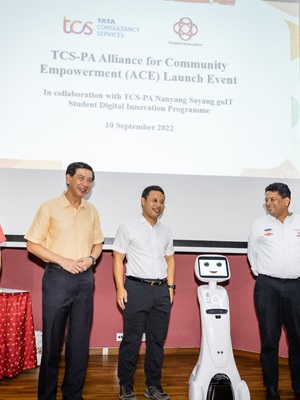Moving forward, Singapore has only made efforts in addressing racism in the workplace by legislating the Tripartite Alliance for Fair and Progressive Employment Practices (TAFEP), allowing those who face discrimination at the workplace to report these instances. However, reporting discriminatory actions and practices require proper documentation, which is unfortunately unrealistic for casual racism because they can be one off comments and it is not done in malice, unlike overt racism. Additionally, minorities might even fear the potential ramifications by reporting instances of workplace discrimination because they might lose their job or they would be subjected to harsher treatment at the workplace.
Indeed, it is also paramount to realise that sometimes, even minorities do not realise that they are subjected to casual racism, thus causing most racially charged sentiments to slip past and go unreported. This is because casual racism develops over time due to backhanded comments and remarks being classified as ‘one off comments’ and they are all said ‘in the name of fun and laughter’, causing the normalisation of racially insensitive comments to ensue. Hence, when minorities hear these backhanded comments, they would either believe that it was ‘all a joke’ and some might not even recognise that such comments are characteristic of casual racism, simply because casual racism has been so normalised and entrenched in society.
Hence, to address casual racism holistically, both in everyday conversations and at workplaces, I believe that we can address casual racism with the two solutions that I have posited in the subsequent paragraphs.
We need to acknowledge that mere exposure would not eliminate our prevailing attitudes overnight. To understand what an attitude is, one needs to note that there are three components of an attitude, namely emotion, behaviour and cognition. To form an attitude, it requires constant reinforcement and affirmation of our emotions, actions and thoughts. Mere exposure such as community events and block gatherings only scratches the surface because interactions between the various races simply do not occur and races within their enclaves only serve to reinforce their staunch beliefs about the other races, entrenching stereotypes about the minorities.
Moving forward, I believe that we need to embrace a call out culture. However, it is paramount to note that call out culture should not be conflated with cancel culture. It is the principle being that call out culture emphasises on correcting the person’s behaviour, getting them to explain his actions and telling them what he should do moving forward, with the hope that he can change. By creating awareness within someone about his actions, emotions and thoughts, it implores him to think about his actions carefully and grants him the opportunity to change. Additionally, when he sees a similar situation in the future, it would galvanise the person to correct others and he would be seen as an ally advocating against casual racism. In contrast, cancel culture is far from correcting someone’s behaviour. In reality, it is a ruthless attempt in getting someone removed from his job and even harassing him, with some going to extremes of threatening the person with his life. It sorely obliterates all chances that a person can redeem himself and robs someone of the chance of being a potential advocate against casual racism.
Therefore, when we engage in call out culture, regardless of everyday interactions or at the workplace, we have to address three key issues: tell the person that he is wrong, get the person to explain why he engaged in such distasteful behaviour and tell him what he should do moving forward. This would create cognisance within the person, allowing him to realise that his actions had undesirable and unintended ramifications, making him think twice before he acts in the future. Even if it is difficult to do so in certain environments such as the workplace, just a mere conversation started about the importance of addressing casual racism should be done continuously to get people to realise that it is something that concerns them. For instance, at the workplace, someone can seize the opportunity to correct his colleague when his colleague makes a casually racist joke and share the importance of being sensitive towards the minorities. Another instance is when the colleague can nudge his colleagues gently not to use Chinese in a workplace setting because it would alienate the other races. Sure, the colleagues may not change immediately because change doesn't happen overnight but there is now a conversation started about casual racism. With a continuous conversation about casual racism and with someone catalysing the change, it would be easier for the rest to engage in discourse about this topic and start correcting their actions out of their own volition, thus gradually ceasing casual racism.
Additionally, we can look into legislative measures such as TAFEP issuing out incremental warnings to companies for not being racially sensitive towards the minorities when hosting celebrations and business functions. For instance, if a company fails to provide food for minorities with dietary restrictions once, TAFEP can issue a warning to the company, stating how they need to be more inclusive at the workplace and the steps that companies can follow to ensure that food catered takes into account of the various dietary restrictions of the various races. If the company still continues to persist in their discriminatory practices of excluding minorities from business functions and celebrations, TAFEP can issue fines to companies or even bar them from receiving grants from the government.
All in all, casual racism is an issue of our concern and everyone plays an instrumental role in ensuring that Singapore is a more inclusive place for everyone to live in. As the national pledge extols, ‘regardless of race’, I sincerely hope that we, Singaporeans, can work towards a more accommodating Singapore and embrace the axiom ‘regardless of race’ so that young persons like Kumar will never feel the weight on his shoulders because of the race he was born into.
Posted 19/03/2024

















